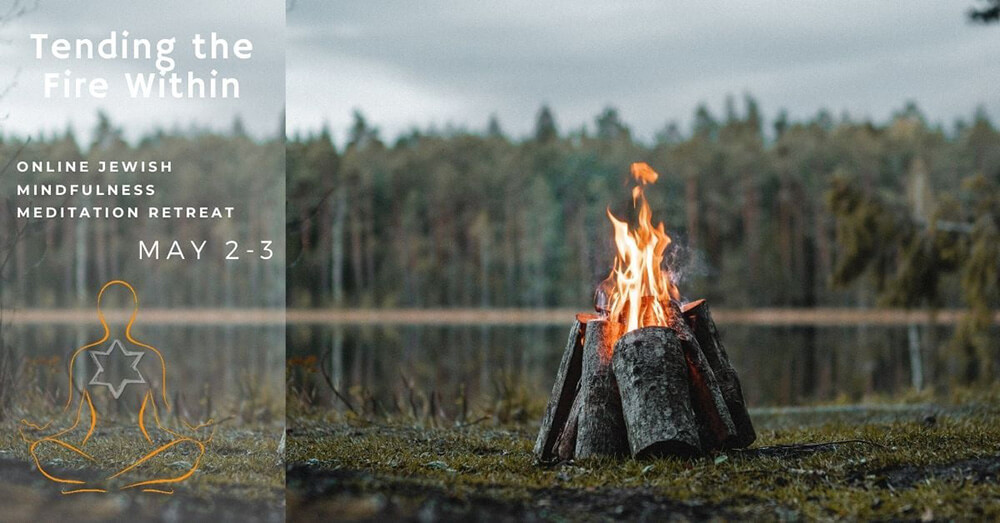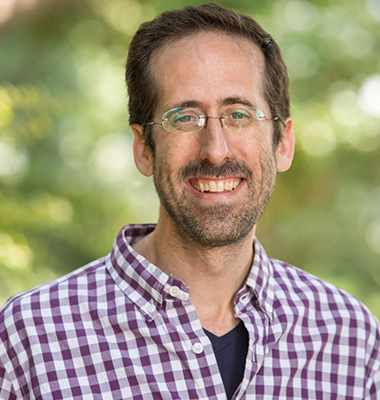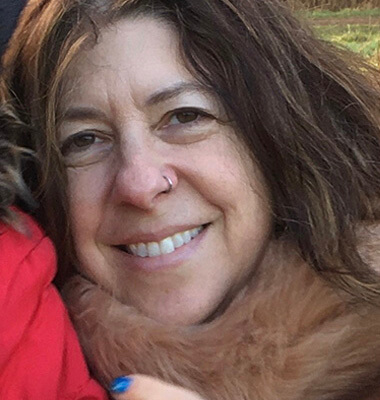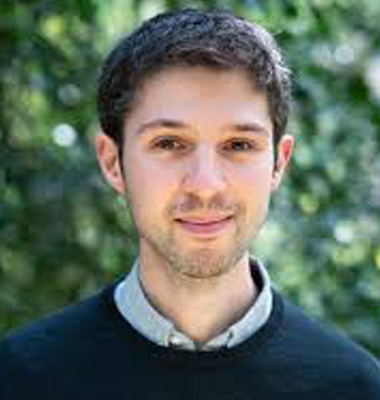
Tending the Fire Within
HaMakom and Or HaLev's Online Spring Jewish Mindfulness Meditation Retreat, led by Rav James Jacobson Maisels, Dr Mira Neshama Niculescu and the HaMakom faculty
Sunday May 2 - Monday May 3, on Zoom
A Jewish meditation practice can give you the tools to open up your heart/mind – bringing wisdom, and cultivating the qualities of compassion and kindness to this period we are living in, and to each moment as it is now. These qualities develop as we learn to sustain loving attention to experience, and to the feelings arising in the present moment.
This retreat is designed to show experientially how a Jewish meditation practice can foster awareness in all aspects of our daily lives. Being at home will provide an opportunity to integrate the practice experience with the rest of home life, creating a model for using contemplative practice to remind us of the possibility of bringing awareness to each moment of each day.
On the heels of the festival of Lag B’Omer, which is intimately associated with bonfires, HaMakom and Or HaLev invite you to turn towards the fire within, our passion and vitality, our desire and energy, our anger, eros and fierce love. Sometimes it burns brightly, and sometime it is an ember; sometimes we hope to cool the flames, and sometimes we seek to cultivate them. Led By Rav James Jacobson-Maisels, this online retreat will offer a variety of practices for working skilfully with these possibilities, including sitting meditation, walking meditation, chanting, talks, Q&A and the opportunity to share experiences in small groups.
You can participate in this retreat in various ways:
- Come for the full experience, exploring an immersion into silence and seamless practice.
- Join for just those parts you are able to, if you have other commitments at the time. For example, you might just join the teaching sessions, where we will explore the theme of the fire within through teachings and practices.
- Weave the different elements of the retreat into your days, dropping into silence and shared practice when you can, and then returning to engage with other aspects of your life as appropriate.
Standard Rate: £75
Scholarship Rate: £25 – available to all who cannot afford the Standard rate
Supporter Rate: £150
Sustainer Rate: £375
The Supporter and Sustainer rates are invitations to help keep HaMakom accessible to all by paying a higher rate, and thereby enabling those who would not otherwise be able to, to come on the retreat at a subsidised rate. We are deeply grateful to all those who allow us to offer scholarship rates to those who need them, and make available practices for grounding and healing rooted in the Jewish tradition.
Retreat fees go solely towards HaMakom’s ongoing operating expenses and do not include any payment to the teachers for leading our retreat. In the Jewish tradition of generosity/Chesed, the teachings are offered freely. At the end of the retreat, you will have the opportunity to make a donation to the teachers and to offer additional financial support to HaMakom.
If you cannot afford the Scholarship rate please contact our Retreat Manager, Zac at: zac@hamakom.community. No one will be turned away because of their financial circumstances.
If you would like to pay in US Dollars, please register on Or HaLev’s website: click here.
Rabbi Dr. James Jacobson Maisels
Rav James is the founder and spiritual director of Or HaLev, a centre for Jewish spirituality and meditation in Israel. He is a devotee of mindfulness practice. Ordained by Rav Daniel Landes, with a doctorate in Jewish Studies from the University of Chicago, Rav James lectures internationally on Jewish spiritual practices. He also teaches at the Pardes Institute of Jewish Studies, Haifa University and Yeshivat Hadar. He strives to integrate his study with his practice, and to help teach and live Judaism as a spiritual discipline.

Bev Cohen

Gidon Fineman

Dr. Mira Neshama Niculescu

The Benefits of Jewish Mindfulness Meditation
(from: The Institute for Jewish Spirituality)
We are dedicated to introducing this practice into the Jewish world for several reasons:
- to enliven and enhance Jewish prayer, celebration, ritual and community;
- to be part of working for the betterment of our fragile and vulnerable planet; and
- to recognize the true and deep sources of happiness in a world filled with seductive, competing and ultimately unsatisfying short-term fixes.
How can Mindfulness Meditation Help?
Mindfulness meditation is training the mind. Just as we go to the gym to make our bodies stronger and more flexible, so mind training helps make our minds more spacious, perceptive and most of all free.
We train our capacity to pay attention by turning our attention, like a flashlight, on our own minds. This helps us see more clearly the nature of our own minds. We become aware of the patterns and habits that run our lives but have not been previously visible.
We begin to realize that these patterns and habits may serve our goals, desires, and purposes – but often they do not. We start to realize that there actually is a “pause button” built into our system. This pause button can be activated when we become triggered by an event outside ourselves and are tempted to act in reactive, patterned and unskilful ways.
The “pause button” wakes us up, creates a space in our mind where we can ask the question: ”What is the skilful, wholesome, wise, goal oriented action I need to take in this moment?” “What are my choices here?” The development of this capacity for inner freedom is why we train in mindfulness. This can be profoundly useful in our lives, especially in our relationships, and in any task we undertake to realize our dreams or express our creativity.
By cultivating attention, we are also able to feel more satisfied with each moment of our experience.
We learn to rest in this moment as it unfolds.
We learn to bring our awareness to the flow of energy in the body which is the very miracle of our aliveness. We learn to be more receptive to the fullness of each moment, rather than resisting what has already occurred or projecting what is not yet here. We learn to notice the arising and passing of all experience, recognizing how short and precious this life is.
We learn to treasure each day for the miracle it is. This is itself a source of happiness. According to modern neuroscience, the mind is a dynamic flow of experiences rather than a fixed state. When we experience this for ourselves, we feel less isolated, less caught in judgment and adversity, and more open to the mystery and majesty of this very life.
Time | Activity |
9:00 AM | Opening program |
9:45 AM | Sitting meditation with instructions |
10:30 AM | Walking meditation with instructions |
11:15 AM | Sitting meditation |
11:45 AM | Contemplative chanting |
12:45 PM | Lunch |
1:45 PM | Sitting meditation with instructions |
2:30 PM | Group meeting |
3:00 PM | Sitting meditation |
3:40 PM | Q&A |
4:00 PM | Yoga |
5:00 PM | Walking meditation |
5:45 PM | Talk from the teacher |
6:45 PM | Dinner |
7:30 PM | Sitting meditation |
8:15 PM | Walking meditation |
8:45 PM | Sitting meditation |
9:15 PM | Bed |
IMPORTANT NOTE:
Meditation retreats can be beautiful and powerful journeys of healing and transformation. However, due to the intensity of the experience, they are not necessarily safe and appropriate for everyone at all times. We therefore ask potential participants to be aware of the following: If you have suffered an episode of mania in the last six months this retreat is not safe and appropriate for you. Please do join us on retreat when there has been more than six months since your last episode of mania. If you have ever received a diagnosis of psychosis, intensive meditation retreat is not safe and appropriate for you.
If you have a history of trauma or serious mental health challenges, retreat may be appropriate and beneficial for you. It is important that you are in touch with us in advance so that we can ensure this retreat will be supportive for you. We want to make retreat as welcoming as possible, and we look forward to hearing from you.